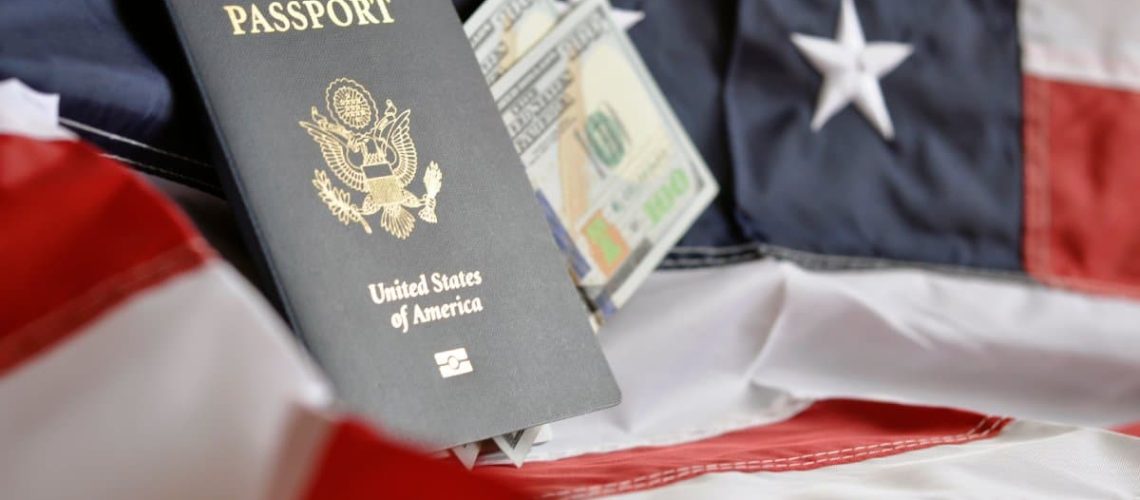Why do Americans often find themselves on the receiving end of eye rolls when they step off their home turf? Is it just about being the loud tourists, or do personal behaviors weigh heavily in global perceptions?
1. Speaking Louder Than Necessary

Americans often speak at volumes considered too loud in many cultures, which can be perceived as obnoxious or disrespectful in quieter, more reserved societies.
2. Wearing Casual Attire Everywhere

The American preference for casual wear, even at formal or sacred sites abroad, often strikes locals as inappropriate or disrespectful.
3. Tipping Excessively or Not at All

Americans abroad can confuse or frustrate with their tipping habits—either by tipping when it’s not customary, or by failing to adjust to local tipping standards.
4. Expecting Everywhere to Accept US Dollars

Some Americans travel abroad expecting to pay with US dollars everywhere, which can be seen as presumptuous and disrespectful to the local economy.
5. Ignoring Local Etiquette

From failing to remove shoes when required to skipping the polite greetings in local languages, Americans’ disregard for local customs can come off as rude or ignorant.
6. Complaining About Local Foods

Voicing dislike for local dishes or incessantly comparing them to American food can be insulting to hosts and cooks, reflecting poorly on American openness and appreciation.
7. Making Everything About America

Conversations that always circle back to the U.S., its policies, or its global standing can tire international ears, making Americans seem self-centered.
8. Lack of Language Efforts

Americans often expect others to speak English and make little effort to learn even basic phrases of the local languages, which can appear disrespectful or lazy.
9. Over-Reliance on Credit Cards

The American habit of using credit cards for even the smallest purchases can disrupt local practices and economies that rely on cash transactions.
10. Joking at Inappropriate Times

Americans’ sense of humor can sometimes miss the mark abroad, especially when jokes are made about serious or culturally sensitive topics.
11. Discussing Controversial Topics Loudly

Open debates about politics or religion, common in U.S. culture, can be awkward or offensive in places where such discussions are more private or sensitive.
12. Not Researching Basic Local Laws

Americans who neglect to learn local laws and regulations often find themselves in avoidable trouble, irritating both authorities and locals.
13. Questioning Local Norms

Directly questioning or criticizing local norms and practices can seem arrogant, suggesting that the American way is superior.
14. Showing Impatience

In many parts of the world, a slower pace of life is normal. American impatience—whether in line, in traffic, or at service establishments—can be jarring and disrespectful.
15. Flaunting Wealth

Displaying expensive gadgets, jewelry, or cash not only draws thieves but also can be seen as flaunting wealth in places where such displays are culturally insensitive.
16. Expecting Special Treatment

Assuming that being American entitles one to special treatment or quicker service is a common faux pas that breeds resentment.
17. Refusing to Adapt to Local Pace

Sticking rigidly to a fast-paced schedule and not adapting to the local, more laid-back rhythms can make Americans stand out negatively.
18. Ignoring Dress Codes

Whether it’s showing too much skin in conservative countries or wearing streetwear in professional settings, inappropriate dress can send the wrong message.
19. Over-Packing Tourist Sites

Traveling in large groups and overcrowding small or delicate tourist sites, often without regard for local sentiment or conservation efforts, can annoy locals.
20. Misunderstanding Bargaining Culture

In places where bargaining is an art, either not engaging at all or pushing too hard can lead to misunderstandings or disrespect.
21. Taking Inappropriate Photos

Snapping photos without permission, especially of people or at solemn locations, can be intrusive and disrespectful.
22. Imposing American Standards

Expecting the same level of service or amenities available in the U.S. and complaining when they’re not met overlooks local realities and can seem spoiled.
23. Using Foreign Spaces as Personal Stages

From loud phone conversations to sprawling out personal belongings in public spaces, treating foreign locales like personal stages is seen as inconsiderate.
24. Not Valuing Local Advice

Ignoring advice or warnings from locals about where to go or what to avoid can lead to unsafe situations or missed cultural opportunities.
25. Assuming Everyone Understands American Cultural References

Using American pop culture references that local people may not understand can make conversations one-sided and exclusive.
Reflection Time

Could it be that the way we carry ourselves abroad needs a serious rethink? It might be time to consider how our individual actions help shape the world’s view of Americans. Isn’t it worth making an effort to be better cultural ambassadors?
21 Beliefs About the Bible That Are Actually False

The Bible is one of the most discussed and debated books in history, yet many common beliefs about it are more myth than fact. How many of these misconceptions have you heard before? 21 Beliefs About the Bible That Are Actually False
21 Subtle Racisms That Are Commonplace in America

Racism in America isn’t always overt; it often hides in plain sight through subtle actions and attitudes. How many of these subtle racisms have you noticed around you? 21 Subtle Racisms That Are Commonplace in America
Only Legal in America: 21 Things You CAN’T Do in the Rest of the World

The U.S. dances to its own beat, especially when it comes to laws that make the rest of the world do a double-take. Here’s a lineup of things that scream “Only in America,” sticking strictly to what’s written in the law books. Ready for a tour through the American legal landscape that’ll leave you wondering if freedom might just be a bit too free? Only Legal in America: 21 Things You CAN’T Do in the Rest of the World
Featured Image Credit: Shutterstock / AliaksaB.
For transparency, this content was partly developed with AI assistance and carefully curated by an experienced editor to be informative and ensure accuracy.

